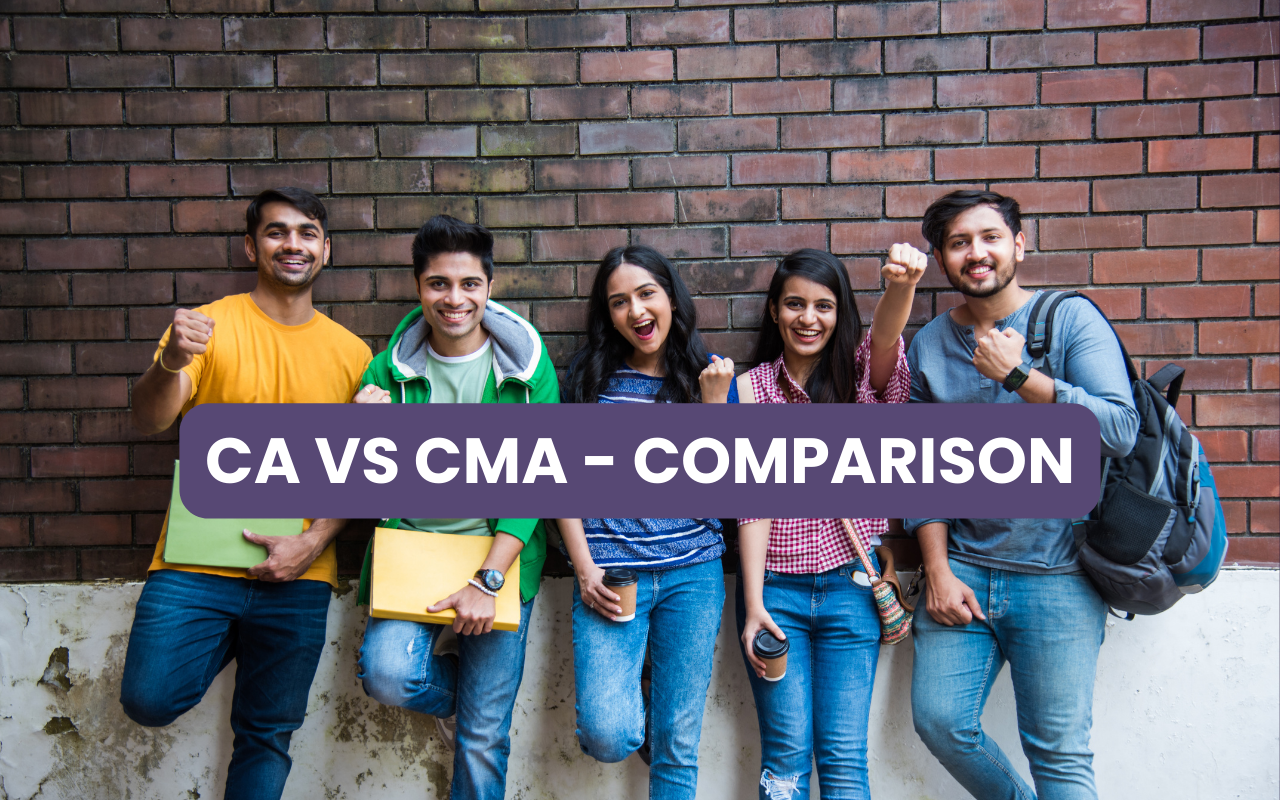Choosing a career is one of the most significant decisions you’ll ever make. It will affect the rest of your life. Many people aspire to be Chartered Accountants, while others seek to become Certified Management Accountants. Confused about CA compared to CMA?
While each of these courses aim to achieve the same goal, they differ significantly. This blog will help you interpret these distinctions and show you how to make the proper selection because we are here to investigate the differences between CA and CMA and determine which is best for you to pursue.
What is CA?
As a chartered accountant, you can work in any sector of business or finance. They include tax accountants and auditors, general management accountants, and budget analysts. You can work for government organizations, as well as public and private companies.
In summary, persons with expertise in this subject are always in demand across all businesses. To become a fully trained CA, you must pass several tests, and the training process is tough. A Chartered Accountant can handle an organization’s financial records as a tax accountant, accounting manager, budget analyst, and, most importantly, auditor.
What is CMA?
The CMA is an advanced designation issued by the Institute of Management Accountants (IMA) that confirms that the holder possesses the skills required to be a certified management accountant.
The certificate program is intended to help finance professionals and students develop the skills required to effectively communicate and apply specialized financial and accounting knowledge used to analyze and interpret managerial data, such as understanding the fundamental processes involved in business planning, management, and control.
The emphasis is on the specialist knowledge required to understand, interpret, and effectively explain cost and management accounting principles relevant to an organization’s planning, budgeting, and regulating activities.
CA vs CMA – Comparison Table
| Particulars | CA | CMA |
| Can we pursue after Class 10? | Yes | No |
| Can we pursue after Class 12? | Yes | Yes |
| Can we pursue during college days? | Yes | Yes |
| Can we pursue after Graduation? | Yes | Yes |
| Country of Origin | India | India |
| Levels | 3 Levels: 1. CA Foundation (4 Papers), 2. CA Intermediate (2 Groups of 3 Papers each), 3. CA Final (2 Groups of 3 Papers each) | 3 Levels: 1. CMA Foundation (4 Papers), 2. CMA Intermediate (2 Groups of 4 Papers each), 3. CMA Final (2 Groups of 4 Papers each) |
| Minimum Pass Marks | 3 Levels: 1. CA Foundation – 40% in each paper, 50% in aggregate 2. CA Intermediate – 40% in each paper, 50% in aggregate 3. CA Final – 40% in each paper, 50% in aggregate | 3 Levels: 1. CMA Foundation – 40% in each paper, 50% in aggregate 2. CMA Intermediate – 40% in each paper, 50% in aggregate 3. CMA Final – 40% in each paper, 50% in aggregate |
| Questions Type | MCQs and Descriptive | MCQs and Descriptive |
| Average Time to complete | 3.5 – 4 years | 3-3.5 years |
| Work Experience Requirement | No requirement to take the exam, but requires 2 years of articleship training. | No requirement to take the exam, but requires 1.5 years of articleship training. |
| Cost | Payable to Institute : ₹ 50,000 Payable to CA Coaching centre : ₹ 1,88,800 Total : ₹ 2,38,000 | Payable to Institute : ₹50,000 Payable to CMA Coaching centre : ₹1,18,000 Total : ₹1,68,000 |
| Average Salary | ₹ 8 – 12 LPA | ₹ 5 – 7 LPA |
| Employment opportunity in India | Yes | Yes |
| Employment opportunity abroad | Yes | Yes |
| Practice opportunity in India | Yes | Yes |
| Practice opportunity in abroad | Yes | Yes |


